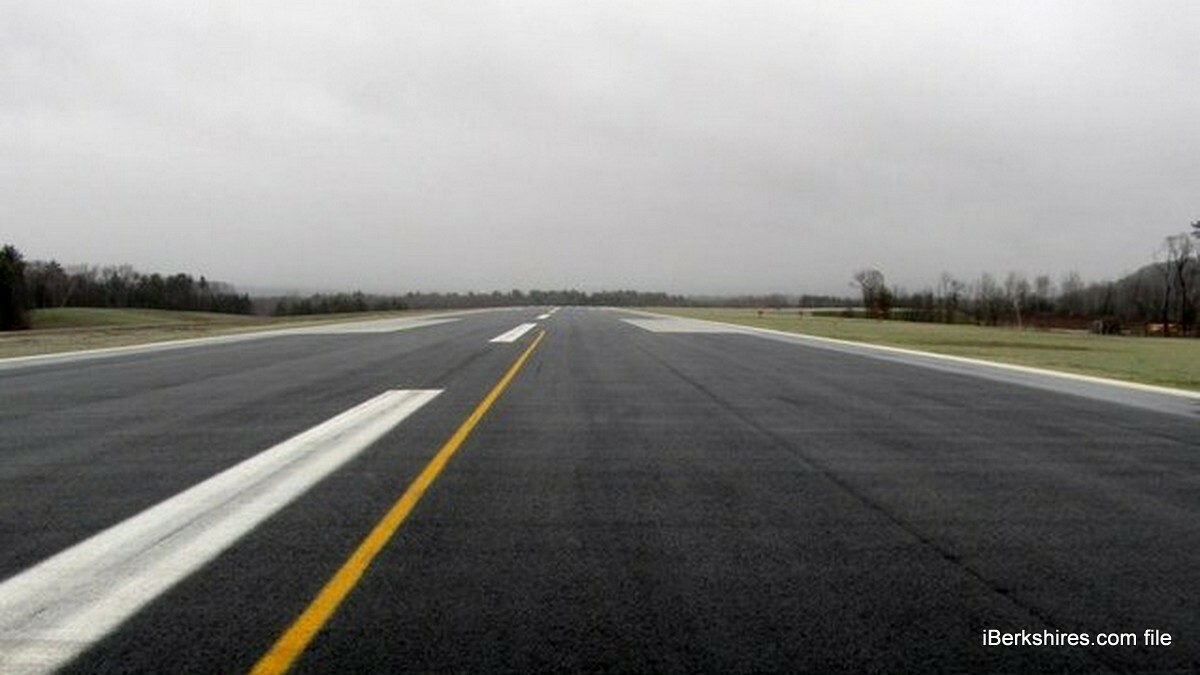
Pittsfield Community Development OKs Airport Project, Cannabis Amendment
PITTSFIELD, Mass. — The Community Development Board has supported plans for a new hangar at the airport and a change to the cannabis ordinance.
Lyon Aviation, located in the Pittsfield Municipal Airport, plans to remove an existing "T" style hangar and replace it with a new, 22,000-square-foot hangar. The existing one is said to be small and in poor condition while the new build will accommodate a variety of plane sizes including a larger passenger jet.
"There's no traffic impacts, there's no utilities to speak of," Robert Fournier of SK Design Group explained.
"I'll say that we did review this at length with the airport commission in the city council and this is the way we were instructed to proceed was filing this site plan review and special permit application."
The application states that the need for additional hangar space is "well documented" by Lyon, Airport Manager Daniel Shearer, and the airport's 2020 master plan. The plan predicts that 15 additional hangar spaces will be needed by 2039 and this project can accommodate up to 10 smaller planes or a single large aircraft.
Lyon Aviation was founded in 1982 as a fix-based operator that provided fuel, maintenance, hangar services, charter, and flight instruction.
This is not the only project at the Tamarack Road airport, as the City Council recently approved a $300,000 borrowing for the construction of a new taxi lane. This will cover the costs of an engineering phase and will be reduced by federal and state grant monies that have been awarded to the airport.
The local share required is $15,000, with 95 percent covered by the Federal Aviation Administration and the state Department of Transportation's Aeronautics division.
The board also approved a petition from the Office of Community Development to amend the city code's recreational and/or medical cannabis retail requirements to eliminate a potential conflict between a forthcoming ordinance addressing equity and Host Community Agreement policies.
Community Development & Housing Program Manager Nate Joyner explained that the language being taken out specifically refers to the cap of 35 retail dispensaries in the city.
"What we found since that ordinance was originally adopted is addressing a cap through the zoning isn't the best mechanism," he said.
"And we are currently facing new regulations issued from the state and the Cannabis Control Commission regarding how the city issues host agreements and equity policies so in order to update our host agreements and to comply with these new equity requirements we're kind of putting together a new comprehensive cannabis policy for the city that will come out of the mayor's office."
The existing zoning requirements were established in 2017 and, last year, the CCC approved changes to the state's adult and medical use regulations including policies that implement the agency's oversight of host community agreements, new equity requirements, and suitability reform.
HCAs must now be "reasonable," meaning that conditions can be required under local regulations, necessary for public health, and imposed on non-cannabis businesses. The new regulations also address impact fees, stipulating that the host community cannot collect them if the license is held for more than nine years.
"This is just kind of one little item we're going to clean up along the way and it just kind of happened that we're still waiting for guidance from the state on those equity ordinances and so this is coming out first," Joyner added.
"So we're just going to take this language out of the zoning ordinance and then in the future we'll cap the number of cannabis businesses through a policy, which is currently the way it's done in practice around host community agreements, how many the mayor is willing to enter into."
Tags: airport, cannabis,















